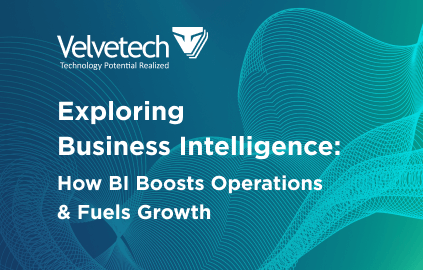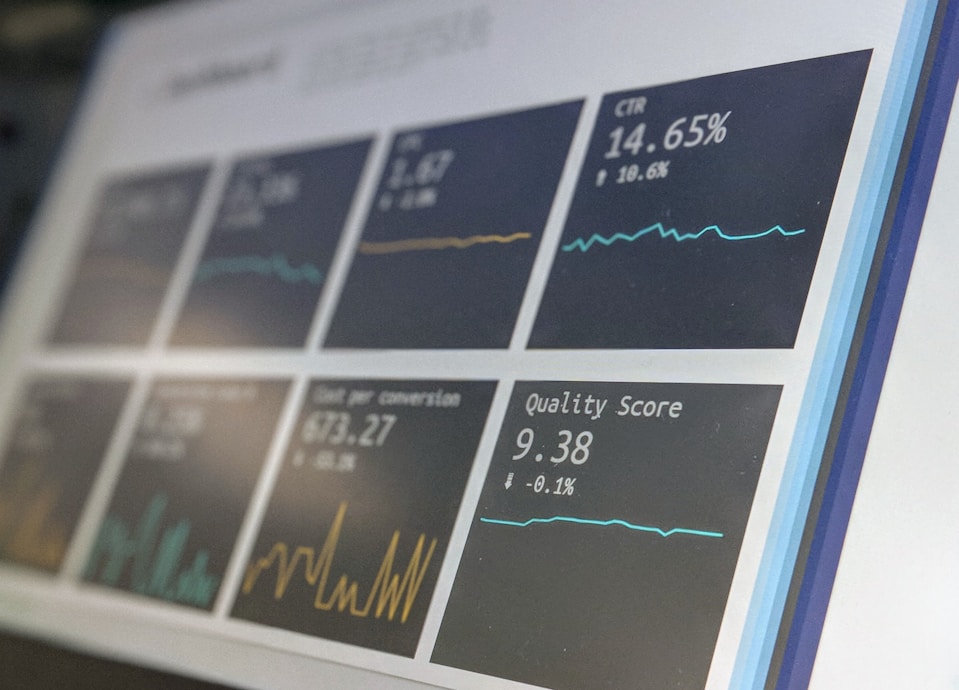Picture yourself on the subway, heading somewhere, and scrolling through your favorite brand’s store. Something grabs your attention, and with just a few clicks, you buy it. Your order is going to be shipped from another country, so you’ll need to wait a couple of days to receive it.
While we enjoy this kind of easy, on-the-go purchase, we may not think about the technologies that make it possible to get goods from overseas. Though we used to take this convenience for granted, it isn’t this simple.
Typically, vessels have plenty of hurdles to jump before reaching their destination and delivering our purchases. And most likely, navigating safely and smoothly on open seas and reaching ports on time would be pretty challenging without a robust maritime software in place.
You can think of maritime solutions as a set of digital tools designed to support operations in global shipping. Specifically, they help seamlessly manage crucial tasks like vessel tracking, shipment planning, chartering, compliance management, documentation handling, and performance monitoring.
In this article, we’ll discover how exactly maritime software can redefine your business. Let’s dive in and explore the core types of these solutions and the benefits they offer.
Key Highlights
- Maritime fleet management solutions provide a clear overview of the entire fleet operations and performance in real time through a single dashboard.
- Marine cargo management software calculates load weight and offers optimal and balanced space usage for safe sailing.
- The shipping industry is responsible for about 3% of global emissions. To avoid heavy fines and remain trustworthy, businesses in this sector must strictly comply with international environmental standards.
- Maritime solutions employ predictive analytics to effectively process huge datasets and pinpoint potential issues, helping prevent them from becoming serious problems.
Key Types of Modern Maritime Management Solutions
The maritime industry is indeed enormous. That is to say, businesses in this niche deal with plenty of complex operations (e.g., logistics, delivery, vessel traffic coordination, compliance, documentation) and should handle them smoothly.
Fortunately, today it’s possible to utilize a wide variety of marine software, from robust fleet management to real-time cargo tracking, to elevate operations and ensure safe transportation. Below are the key types of maritime solutions that we recommend keeping an eye on:
1. Fleet Management Software

It won’t be an exaggeration to say that marine fleet management software is the heart of large shipping companies. Specifically, that is because they own multiple vessels and require a solid overview of the entire fleet.
With these kinds of platforms in place, businesses can monitor all vessels from a central dashboard, tracking critical factors like location, speed, and fuel consumption in real time.
For example, if three of your ships are heading to the same port from different locations, marine fleet management software helps ensure they’re all on the right course. Plus, it may suggest the optimal route for each one based on traffic and fuel consumption. Thus, leading to timely deliveries and cost-effective operations.
Learn how we built a robust Shipping Tracking System for Our Client
2. Vessel Management Software
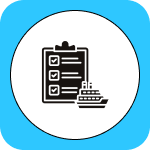
While having fleet management software by your side is a wise move, it would be a good idea to employ a maritime vessel solution as well. This type of maritime management software provides insights into the technical condition of an individual ship, highlighting safety checks, equipment status, and overall vessel maintenance.
As such, you can assess your ship’s condition and make necessary adjustments. For example, you may find out that salt water causes rust on metal parts during a 15-day transcontinental voyage, and repair it before the next trip to maintain safe sailing.
3. Crew Management Software

When it comes to smoothly running a maritime business, managing equipment alone isn’t enough; staff coordination is of utmost importance. In particular, you need to set an optimal crew schedule, creating equal conditions for each employee. Plus, it’s crucial to strictly follow labor law to ensure you’re not violating working hours.
Additionally, all your employees should be certified according to industry standards. Meeting all the above-mentioned steps could be tough and time-consuming without marine crew management software in place.
By employing such platforms, you can automate scheduling in alignment with local laws and regulations. These solutions also store records for each crew member, assuring everyone is certified and properly trained before going on board. Overlooking these factors may damage your business reputation and lead to hefty fines.
4. Cargo Management Software
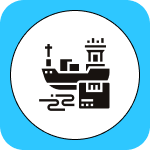
Did you know that Valemax vessels can handle up to 400 million kilograms of cargo? That’s a truly massive amount of goods to transport. However, it’s critical to use space wisely. If not, the ship may become unstable during the sail. Probably, you can imagine how badly that could turn out.
Needless to say, it’s nearly impossible to manually balance cargo weight and effectively use space, especially on vessels of this scale. Fortunately, cargo management solutions have come to save the situation.
They calculate the weight of parcels and offer the best space usage option. So, there’s no need to worry about overloading or having one area heavier than another. Everything balanced perfectly to ensure safe sailing.
5. Port Management Solutions
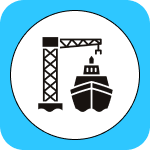
Let’s face it, port management comes with its fair share of challenges. Typically, you need to smoothly handle complex tasks like vessel movement tracking, scheduling departures, and coordinating terminal operations, which can hardly be achieved without robust port operations management software.
Probably, you understand that seamless communication across all port departments is critical to streamlining the port and its supply chain operations. There is one foolproof option to get things done: creating an enterprise solution.
This is because an ERP system can seamlessly integrate with other platforms to ensure smooth data exchange in a single, centralized source of information. Thus, leading to business-driven decisions.
For example, you may implement it with logistics solutions to better schedule departures, with terminal operating systems to reduce queues, or with maritime inventory management systems to track goods and storage.
Discover more interesting ground about ERP Integrations
6. Emissions Management Software
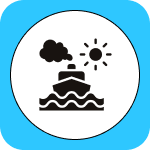
The shipping industry is quite carbon-intensive. Today, it is responsible for about 3% of global emissions. This is a significant percentage, which is going to grow rapidly and hit up to 10% by 2050 if the emission levels continue growing.
This puts the spotlight on a big problem. In particular, it may significantly impact climate change. That’s why there are strict regulations and emission standards that the maritime industry must meet.
To achieve this, businesses in this sector should first measure their emission levels accurately. Here’s where maritime emissions management software kicks in. In particular, they monitor emissions like CO₂, NOₓ, and SOₓ, and generate compliance records to ensure vessels meet international environmental standards.
Without these insights in place, you are at risk of paying through the nose for non-compliance. Ultimately, your operations may cause serious environmental damage.
Find out how you can Elevate Your Sustainability Efforts with IIoT
7. Risk Management Software
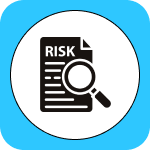
The maritime industry knows risk all too well. Sudden weather changes, equipment failure, and regulatory compliance are just the tip of the iceberg when it comes to potential hazards.
Needless to say, all of the above-mentioned factors should be taken into consideration before sailing and, of course, monitored throughout the entire transportation process. Otherwise, even a small mistake or oversight can lead to serious consequences.
Maritime risk management solutions may become your helping hand in this regard. Typically, these tools assist in identifying potential issues early on and creating effective emergency plans. Moreover, they can showcase the impact of each risk on your operations. Hence, you may prioritize what to handle first.
To remain trustworthy and avoid heavy fines due to legal inaccuracies, the maritime industry must strictly adhere to international, national, and local regulations. Here is where compliance and regulatory software comes in handy. Specifically, it helps automate safety checks, documentation, and reporting, ensuring everything aligns with industry regulations.
On top of that, by utilizing these platforms, you can evaluate risks after each shipboard operation and identify what went wrong. For example, your risk management solution may report issues like safety violations based on the marine safety management system framework, helping you make relevant adjustments before the next transportation.
Maritime Management Software: What’s All the Fuss About?
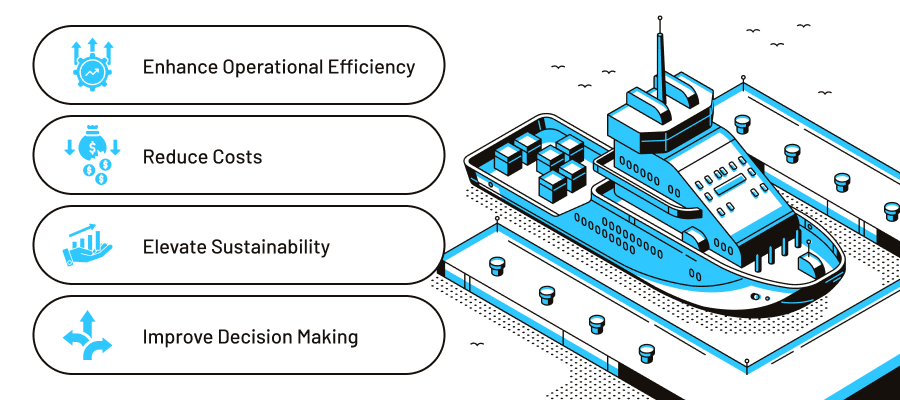
The global marine management software market is forecasted to be worth nearly $3.06 million by 2034. Having discussed the outcomes businesses may gain with these solutions, you might not be surprised by such growth.
Most likely, you’ve already understood the key benefits to expect from this innovation. However, we shortlisted the core pros in case you want a quick overview of how maritime management software may elevate the quality and safety of your operations.
- Enhance operational efficiency: Marine solutions automate numerous tasks like scheduling, cargo tracking, route optimization, crew management, and compliance monitoring. This reduces human errors, speeds up business operations, and keeps them highly efficient.
- Reduce costs: Maritime platforms track critical factors like fuel consumption and regulatory compliance, thus cutting costs on unnecessary wastage and heavy fines because of legal violations.
- Elevate sustainability: When you optimize routes and reduce fuel consumption, it also significantly minimizes pollution from vessels. Besides, as we mentioned, maritime emission management solutions collect data on emission levels and sources, helping businesses improve their sustainability efforts.
- Improve decision-making: Maritime platforms gather variables from various sources, like IoT sensors, GPS, and weather systems, to deliver in-depth analytics on critical factors such as weather conditions, shipment delays, and potential equipment failures. This empowers companies to make timely, informed decisions and keep their operations secure.
IoT and sensor data provide real-time insights into critical aspects of vessel operations (e.g., weather conditions, shipment delays, route optimization, potential failures, pollution levels, etc.), leading to prompt actions and better outcomes.
Core Functionalities of Maritime Management Software: What’s Behind the Waves?
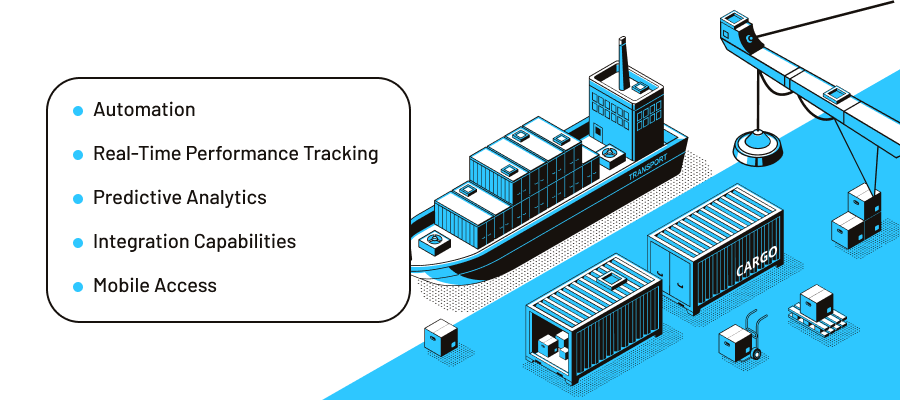
The capabilities of your solution will, of course, depend on your business objectives. So, it’s crucial to ensure the platform you choose includes all the relevant functionalities to handle your operations thoroughly. While different types of maritime systems come with different features, below are the core ones that ideally each robust solution in this niche should have.
Automation
Today, it’s hard to picture a large-scale maritime business without automation in place. Companies in this field deal with plenty of complex operations that must be handled promptly and accurately.
With that in mind, automation capabilities have become non-negotiable for maritime solutions. By leveraging the right automation tools, you can effectively manage all activities we’ve covered earlier, from crew management and vessel tracking to compliance reporting, load handling, and more.
Find out the core Benefits to Consider from Business Process Automation
Real-Time Performance Tracking
Consider, your vessels are preparing for a long voyage — up to 30 days at sea. To make the transportation safe and smooth, you undoubtedly ensure all technical systems, from navigation to fuel, work perfectly.
While after safety checks, you can bet your bottom dollar on the ship’s security and readiness to sail, there’s no guarantee that something won’t go wrong during the voyage. That’s why you need to monitor your vessel’s performance around the clock.
And, as you may aptly guess, your helping hand here can be maritime fleet management software, empowered with real-time tracking features. This is the only way to detect issues and prevent them at an early stage. Thus, maintaining safe operation during the entire transportation process.
Tap into our case study to see how we developed a Real-Time Location Tracking System
Predictive Analytics
Sure thing, identifying hazards at their earliest stage leads to minimal losses. And that’s perfect for business. But do you know what’s even better? Avoiding such issues altogether. And you can get there with predictive analytics in place.
Specifically, this type of data analytics relies on modern innovations like artificial intelligence and machine learning to process huge datasets and provide potential outcomes based on historical data. As a result, you can prevent serious issues from happening.
Check out more interesting Types of Data Analytics
Integration Capabilities
We’ve already touched upon the importance of connecting your maritime solution with other innovations (e.g., CRM systems, ERP, inventory management platform, BI tools). This is the only way to link all parts of your operation and establish effective and safe processes. If your software doesn’t have robust integration capabilities, then all your efforts may fall short.
BI for Business
Find out the secrets of how business intelligence boosts operations and what BI tools and practices drive data analysis.
Mobile Access
One of the building blocks of safe and smooth transportation is seamless communication and data access. However, it’s not always possible for mariners or other personnel, such as ship and port operations teams, to use a web application in this regard. Typically, they work in an environment with little access to laptops.
That’s why it’s crucial to make sure all the staff can access your maritime solution on the go. Hence, you need to either make your web platform mobile-responsive or develop a dedicated mobile app.
Choosing a Winning App Development Strategy
Watch our webinar to uncover effective mobile development approaches and launch your app.
Picking Up the Relevant Maritime Management Software
Navigating the open sea is no easy feat. It’s full of risks and challenges. To keep vessels moving safe and secure, and ensure timely deliveries, you definitely need a solid maritime solution by your side.
We’ve covered the key types of this software along with their core functionalities. And while they can take a big burden off your shoulders, they first need to be designed properly.
Before diving into this journey, make sure you partner with a professional vendor who is well-versed in the best practices of maritime software development. Here, at Velvetech, we can craft a reliable product that delivers real value to your business.
Want to learn more about how we can collaborate? Contact us.
